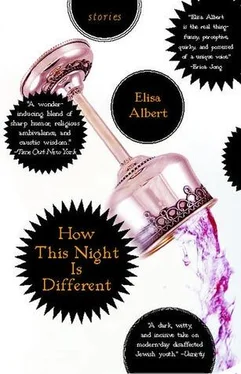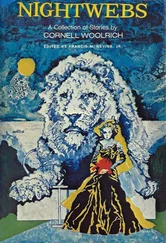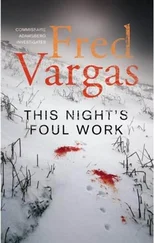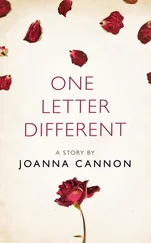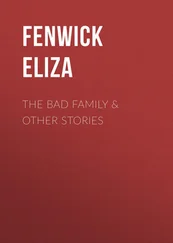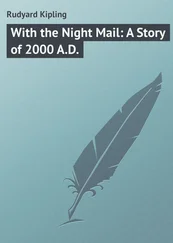Snooping had been a lifelong habit of Shayna’s; sort of her modus operandi, the way she figured stuff out — the stuff no one would save you the trouble by just telling you. In Jamie’s backpack were magazines (a Teen Vogue, a Teen People, a Lucky ), what looked to be a brand-new pink iPod, and Jamie’s own journal, a hideous pink-and-yellow thing with sequins. It, like Shayna’s, was blank.
Inside the miniduffel were three piles of neatly folded clothes (including a whole other velour tracksuit, this one forest green with racing stripes down the arms!) and a canvas toiletry pouch. The basics were all included: toothbrush, toothpaste, acne wash and spot treatment, Berry Fresh body wash, a packet of pink razors. Oh my, and what have we here? A bottle of prescription pills. Zoloft! Shayna felt a bolt: the miracle of rewarded snooping, the thrill of knowing what she had no right to know, what no one knew she knew. Very interesting. What in the world could Jamie have been depressed about? Given the tracksuits, the in with Jessica, the late-night rendezvous with whoever, could there then be hope for anyone?
She counted out three pills, wrapped them in stiff hotel tissues, and stuffed them into a corner of her backpack’s front pocket. She felt decidedly better, then, about standing on the lip of the fiery altar upon which the history of her people and the future of mankind were meant to be sacrificed.
The strange reality of Kraków was that it was beautiful. Spring had sprung, and the city was in bloom, fragrant, lush. Just the right temperature, with a little breeze. They spent the morning gaping at the intricate old buildings, the crowded Jewish cemeteries. Even the ghetto, with its big ugly wall, seemed like sort of a fun place to be: like one of those themed villages within Disney World where you could get your Disney passport stamped. The birds chirped ceaselessly.
A pack of Hasidic tourists shadowed them all day, visiting the same spots. The Living and the Hasids were mutually compelled to avoidance, however, as if in silent agreement that they had nothing in common. There was zero eye contact, despite the coincidence of running into each other again and again: at the yeshiva, in the ghetto, at the cemetery.
“Weird, huh?” Jonah came up beside Shayna in front of the Old Shul in Kazimierz. He could’ve been talking about anything, really, and it was weird, all of it. Poland, Kraków, the Hasids, being the same age as Max when he’d been here despite being the prototypical little sister and feeling forever younger. “What insanity,” Max had written, “to see the whole Jewish community eradicated. Their [ sic ] all gone now, and all these Jewish places are just abandoned museums.” Next to her Jonah gave off a sharp crack of wintergreen. Gum. “Ghosts of Poland,” he sighed, breath fresh.
“Huh?” She turned to look at him, noticing the hard line of his jaw.
“Us. We’re the ghosts of Poland. All gone.” He jutted his chin toward the empty synagogue with its proliferate plaques. Hasids and Living milled about, taking pictures.
“Can I have a piece of gum?”
He gave her one, and Shayna rooted around in her bag for a pen and a paper scrap on which to make note of this notion — the ghosts of Poland! It would be excellent, original journal fodder.
“Man,” Jon Abrams said at Where You’re At that night. “It was weird seeing those Hasidic people around all day.”
“How so?” asked Rabbi Amy.
“Well, at first I thought maybe they were Polish or something, you know? Like maybe there were still Jews left here. But then when I realized they were just tourists, like us, it made me kind of angry, you know?” He shook his head. “Weird.”
Dumbass, Shayna thought. Max had beaten Jon to the punch on that one six years ago: “How weird to think that now we tourists are the only Jews here at all.”
“Yeah,” said Robbie Altschul, nodding. “Totally.” Jamie was sitting on his lap, which solved the mystery of where she had been the night before. She shivered, and he wrapped his arms tightly around her.
They met their survivor, Sonja, who would be accompanying them to Auschwitz. She had a We Are the Living! name tag affixed to her cardigan, which seemed pretty redundant, given that she had survived, that she was, in fact, still alive, truly Living. Sonja had been in Auschwitz; her whole family had died there. She had survived, she told them, her voice shockingly steady, because she had gotten a job as a maid for an SS officer and his family.
Heather wrote “euphemism?” on her binder and held it out for Shayna to see.
Rabbi Amy passed around a handout entitled “Guardians of the Past” and then they talked about tomorrow. This is what they called it: “Tomorrow.” Not “Auschwitz.” They were supposed to let it all flow through them, she said. Express whatever they needed to express. Feel what they were feeling. Max had feared the worst: not feeling enough, not feeling at all. Which would, he speculated, make him a monster.
“It’s gonna be intense, you guys,” Jonah said. “Really emotional.”
Shayna raised her hand before she realized what she was doing, and all eyes were on her.
“What if we go, and I don’t feel emotional enough? ” she asked the group, emboldened by the sound of her own voice. Max had wondered similarly, so of course this query would bring Shayna the support and empathy of all and sundry. “Like, what if it’s, like, ‘ Da-da-daa, Auschwitz, whatever’?”
“Thanks for sharing that, Shayna,” said Rabbi Amy slowly. “Anyone else feeling anything along those lines?” Jamie shook her head disgustedly. Others looked confused, horrified. Jessica, who was leaning back into Ari between his outstretched legs, playing with a lock of his hair, sat up straight.
“My bubbe ’s a survivor, ” Zoe said incredulously, after an interminable pause. Even Heather, eyebrows raised, wouldn’t make eye contact.
Then Darcey Feingold broke down, sobbing. “I — feel — the — opposite,” she hiccupped when she’d managed to pull it together. There were sympathetic nods all around. “It’s just so…intense!” Here Darcey let loose again, and Where You’re At fairly disintegrated.
“We’re all here for you,” Jessica told Darcey, stroking her hair. “We’re all in the same boat.”
“It’s going to be okay,” said Rabbi Amy. “You’re going to be just fine. It is intense.”
“We’ll get through it together,” said Ari, giving her a victory sign.
“You are so fucked up,” Heather mouthed at Shayna, grinning.
Rabbi Amy told them all to get a good night’s sleep—“You’re going to need it”—but they stayed up late, then later, reluctant to allow it passively to become “Tomorrow.” People gathered along the hallway and in rooms with open doors, practiced their grimaces, said things like, “It’s so weird we’re going Tomorrow” and “Can you believe we’re going Tomorrow?” Darcey was an ersatz celebrity, wan and pale and sniffling for hours. People took turns holding her hand, hugging her. Only Zoe seemed perkier than usual, holding court on the top bunk in room 410, telling of her bubbe ’s narrow escape from the gas chamber.
Shayna wandered up to Jonah’s room and knocked on the door. She would try to explain herself via estrangement from her journal — that was justification enough, right? — he’d empathize, say something wise like, There’s nothing new to be said about this place so just give voice to your own singular experience, and then spoon her, maybe, for like an hour. When she heard “Come in,” she opened the door to find Jonah and Rabbi Amy sitting on the floor playing gin. Rabbi Amy was laughing.
Читать дальше
